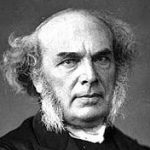Lesson Focus: This lesson shows ways believers can be involved in missions.
Give to Missions: Romans 15:23-28.
[23] But now, since I no longer have any room for work in these regions, and since I have longed for many years to come to you, [24] I hope to see you in passing as I go to
[25] At present, however, I am going to
[23-24] Paul plans to visit Rome. A combination of three factors has facilitated his long-awaited, long-postponed visit. (1) His missionary service in the
[25-27] He plans to visit
[28-29] He plans to visit
Pray for Workers: Matthew 9:35-38.
[35] And Jesus went throughout all the cities and villages, teaching in their synagogues and proclaiming the gospel of the kingdom and healing every disease and every affliction. [36] When he saw the crowds, he had compassion for them, because they were harassed and helpless, like sheep without a shepherd. [37] Then he said to his disciples, "The harvest is plentiful, but the laborers are few; [38] therefore pray earnestly to the Lord of the harvest to send out laborers into his harvest." [ESV]
[35] The tense of the verb indicates continuous action on the part of Jesus. Jesus kept going around all the cities and villages of
[36] The verb translated had compassion is always used of Jesus or by Jesus in His parables. It is a verb that is particularly associated with Him. It is always used to describe the attitude of Jesus and it characterizes the divine nature of His acts. What we are to see here is not purely human pity, but divine compassion for troubled people. Matthew goes on to use two picturesque expressions to bring out the plight of those who were the object of Jesus’ compassion. The translations employ a variety of expressions: “worried and helpless”, “harassed and helpless”, “distressed and downcast”, and “harassed and dejected”. The imagery is that of shepherdless sheep, sheep wounded and torn either by hostile animals or by thornbushes and the like, and then prostrate and helpless. This picture of people completely without resource is rounded off by explicitly likening them to sheep without a shepherd, an expression used of the Old Testament people of God. Sheep without a shepherd points to people who are in great danger and without the resources to escape from it.
[37-38] The harvest is used metaphorically of people. Jesus does not spell it out, but He is speaking of people who are ripe for inclusion in the kingdom. In that situation it is necessary that something be done to bring them in. A crop of wheat needs workers to bring the grain into the barn; without the laborers the crop cannot be reaped. Jesus says that in the great harvest of which He is speaking the laborers are few. Because the workers are few, specific action is demanded. In order to reap the harvest He saw, Jesus enlists His followers to take part in the harvesting. Therefore means that the state of affairs indicated in the previous verse demands action. Because there are few workers for the great harvest it is incumbent on the disciples to do something. The particular action Jesus singles out is prayer. This particular word that is used here for prayer means prayer that springs from a sense of need. To appreciate the need is to be driven to prayer. In an age like ours we would expect a call to more vigorous and effective action ourselves (and situations continually arise when that is the right course to pursue). But Jesus points to prayer as the really effective thing. The prayer is not to be a substitute for the labor: the disciples were to be reapers as well as praying men. But the work will not be done without prayer. No matter how great our personal exertion, we will not be able to gather in the whole harvest. Therefore we are to pray to Him who can send out the workers who are needed. The harvest is already the Lord’s, but it must be gathered in. It is one of the functions of the workers in God’s field that they pray for more workers to be sent into the field. In this passage Jesus is talking about the care God has for His own and the importance of bringing them home to Him.
Disciple the Nations: Matthew 28:18-20.
[18] And Jesus came and said to them, "All authority in heaven and on earth has been given to me. [19] Go therefore and make disciples of all nations, baptizing them in the name of the Father and of the Son and of the Holy Spirit, [20] teaching them to observe all that I have commanded you. And behold, I am with you always, to the end of the age." [ESV]
[18] Jesus was evidently at a little distance from the group, for He came. First, Jesus made clear that in His risen state He was in a situation very different from that when He had been the penniless preacher and healer they knew so well. All authority in heaven and on earth has been given to me. Now Jesus has received the fullest possible authority. He is making clear that the limitations that applied throughout the incarnation no longer apply to Him. He has supreme authority throughout the universe.
[19] Therefore leads on to the fact that His sovereign authority has consequences for those who follow Him here on earth. Because He is who He is and because He has the full authority He has, they are commissioned to go and make disciples. In this Gospel a disciple is both a learner and a follower; a disciple takes Jesus as his teacher and learns from Him, and a disciple also follows Jesus. The life of a disciple is different because of his attachment to Jesus. The Master is not giving a command that will merely secure nominal adherence to a group, but one that will secure wholehearted commitment to a person. Jesus’ disciples are people for whom a life has been given in ransom [20:28] and who are committed to the service of the Master, who not only took time to teach His disciples but who died for them and rose again. Those who are disciples of such a leader are committed people. And, of course, this is the kind of disciple that He looks for His followers to make. They are to make disciples of all nations, which points to a worldwide scope for their mission. It took the church a little time to realize the significance of this, and in the early chapters of Acts we find the believers concentrating on proclaiming their message to the Jews. But there seems never to have been any question of admitting Gentiles, the only problem being on what conditions. Jesus goes on to speak of baptizing these new disciples in the name of the Father and of the Son and of the Holy Spirit. The baptism Jesus here initiates was essentially a new sacrament, by which people were to come under the influence of the Triune God, to be used in His service. We should notice that the word name is singular. Jesus does not say that His followers should baptize in the “names” of Father, Son, and Holy Spirit, but in the “name” of these three. It points to the fact that they are in some sense one.
[20] Baptism is not the be-all and end-all; it is no more than the beginning. The new disciple is to be baptized, but he or she is also to be taught to observe all that I have commanded you. The church’s teaching function is thus of great importance. We teach because Jesus commanded us to teach, and there is no way of diminishing the importance of an activity that owes its origin to the command of our Lord Himself. But Jesus is not speaking about education for education’s sake. He speaks of the taught as “observing” what Jesus has commanded. In other words, Jesus is concerned with a way of life. As we see throughout Matthew’s Gospel, Jesus continually urges His followers to live in a manner pleasing to God. He has objected to the sterile legalism of many in His day and has gone beyond the letter of the law to the things that are rightly seen as arising from its spirit. So there is to be instruction and there is to be purity of life. We should not miss the significance of all. Jesus is not suggesting that His followers should make a selection form His teachings as it pleases them and neglect the rest. Since the teaching of Jesus is a unified whole, disciples are to observe all that this means. The final promise is introduced by Matthew’s characteristic and behold. This Gospel ends with Jesus’ breathtaking promise that He is with His followers always, to the end of the age. He does not say “I will be with you,” but I am with you, and His “I” is emphatic. Thus His words convey the sense of reassurance and certainty. In other words, the disciple is not going to be left to serve God as well as he can in the light of what he has learned from the things Jesus has commanded. The disciple will find that he has a great companion as he goes on his way through life. This Gospel opened with the assurance that in the coming of Jesus God was with His people [1:23], and it closes with the promise that the very presence of Jesus Christ will never be lacking to His faithful follower.
Questions for Discussion:
1. Why did Paul place so much importance on the offering he was taking to Jerusalem? On his way to Spain, Paul hoped that the church at Rome would provide assistance for his journey. This expected help was certainly more than just financial. What are the different types of assistance you can provide to missionaries that you know?
2. List the various elements of Jesus’ ministry from 9:35. Why is each important for the spread of the Gospel? What does verse 36 tell us about Jesus’ motivation for ministry? Do you have this same motivation? How should this motivation impact the way you view “the harvest”?
3. What different types of workers are needed for the harvest? Where do you fit in?
4. List the different commands by Jesus in His Great Commission. What does it mean to be a disciple of Jesus? Meditate on how your answer to that question impacts the way you obey His command to make disciples. Why is the teaching ministry so important for making disciples?
References:
Matthew, D.A. Carson, EBC, Zondervan.
The Gospel according to Matthew, Leon Morris, Pillar NTC, Eerdmans.
The Epistle to the Romans, Leon Morris, Eerdmans.
Romans, John Stott, InterVarsity.

















